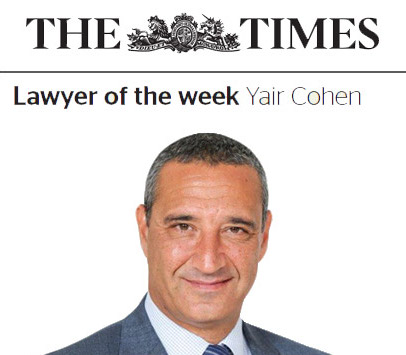Right to be forgotten Google
What is Google approach to right to be forgotten requests
Since 2013, Google has been receiving the highest number of right to be forgotten requests out of the all the search engines with a UK reach. How do Google assess right to be forgotten applications and what is the likeliness of success when you make a right to be forgotten request to Google?
Google right to be forgotten success rate
Google right to be forgotten delisting criteria
Would Google notify the publisher of your right to be forgotten request
Google right to be forgotten success rate
Between June 2014 and November 2020, Google have received right to be forgotten requests in relation to nearly 4 million links. Among the top ten sites most impacted by right to be forgotten requests to Google are Facebook, Twitter, Youtube, Google Groups, Google Plus and Instagram. For right to be forgotten requests from the UK only, you can add to the list 192.com, MailOnline, Pressreader and the DailyTelegraph.
Google is more likely to refuse your right to be forgotten request than to accept it. In just over 20 percent of the right to be forgotten requests from the UK, Google’s refusal was due to what it considered as insouciant information. This suggests that the quality of the right to be forgotten applications that are submitted to Google from individuals who live in the UK is fairly poor. A poor right to be forgotten application, therefore, makes it far easier for Google to reject.
Google right to be forgotten delisting criteria
Google has developed a right to be forgotten delisting criteria which provides a guidance to its decision making process whether or not to remove links following each right to be forgotten request. Google has developed the criteria for assessing delisting requests under a right to be forgotten to assist both, its reviewers, or assessors and individuals who wish to have links delisted from Google search results.
The delisting criteria is helpful but is not conclusive and is being used by Google’s right to be forgotten assessors to make a quick decision as to whether to accept any particular right to be forgotten application or whether to reject it.
If Google’s right to be forgotten assessors are unable to make a decision, or if they find your right to be forgotten request challenging or difficult to assess, they will escalate the request to a higher level ,which includes specialist staff and lawyers. Approximately 30 percent of the right to be forgotten requests are escalated for a second opinion.
One of the most important factors in the right to be forgotten assessment by Google is whether the individual who made the right to be forgotten request is someone who plays a role in public life. This is often a subjective assessment by Google staff, which means that if your right to be forgotten request had been rejected due to this factor, there is a good likelihood that you could successfully appeal it. You will need to be able to demonstrate to Google that, in fact, you are not a public figure. We have more information here about how to appeal a refusal of a right to be forgotten application .
Another important factor for Google assessors of right to be forgotten requests is the nature of the information. Google assessors will typically look to see if the information you ask Google to delist is of the type which may be considered private. This may include information related to your intimate or sex life, personal financial information, personal identifiable information, information about children or information which may put you at risk of physical harm.
It is often difficult for Google right to be forgotten assessors to make the right call, particularly because sometimes they consider that it is acceptable to publish private information about an individual due to other factors, such as public interest.
A factor which might tip the balance in favour of refusing a right to be forgotten request is the source of the information and the motivation behind the publication. As many right to be forgotten requests relate to newspaper articles, particularly in the UK, the balance is often tipped against the individual who requested the delisting from Google.
With nearly every right to be forgotten request there is the element of time. So time is often a big factor in the Google right to be forgotten decision making process. How long has the information been online and for what purpose was it published, would be common questions by the right to be forgotten assessors.
Other relevant time-related questions might be, has sufficient time lapsed to discount public interest in the information, does the information you are asking to delist under a right to be forgotten have historical or educational value and does it relate to spent criminal convictions.
Would Google notify the publisher of your right to be forgotten request
In some cases, Google will actively notify the publisher or the webmaster of your right to be forgotten request. This call is made by Google on a case by case basis, but all publishers and webmasters are notified if one of their web pages is delisted by Google, through Google Webmaster portal.
You should assume that the publisher of the information you are seeking to delist from Google searches will be notified of either your right to be forgotten application to Google or of any positive delisting decision.
If you believe that you have been adversely impacted by Google notification of the publisher of your right to be forgotten request, you should contact your lawyer for advice.
Popular topics
MORE INFORMATION
Right to be Forgotten Solicitors
We are the only law firm in the UK with a dedicated team that specialises exclusively in making successful Right to be Forgotten applications.
Call Free on 0800 612 7211
Privacy Policy. 2020 © A Right to be Forgotten. All rights reserved



